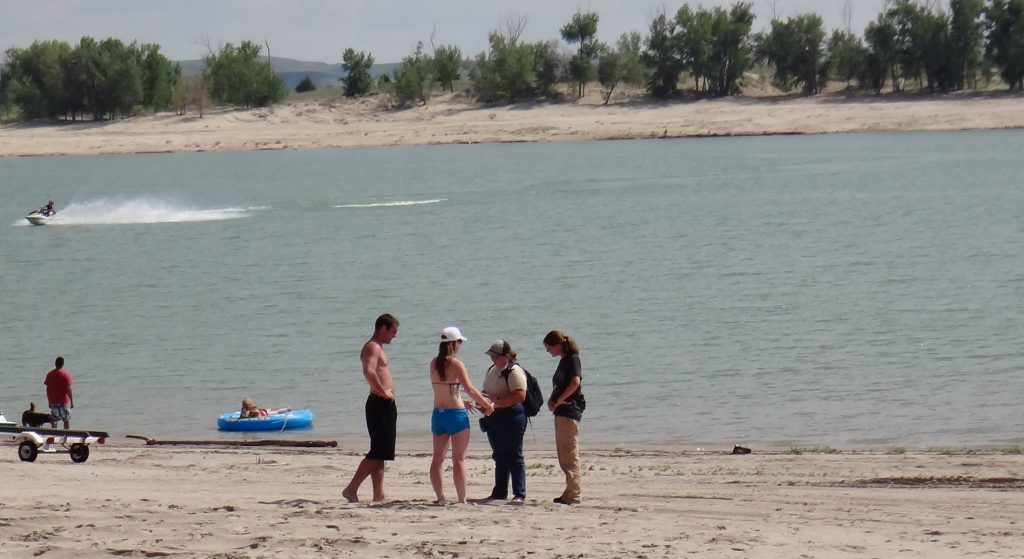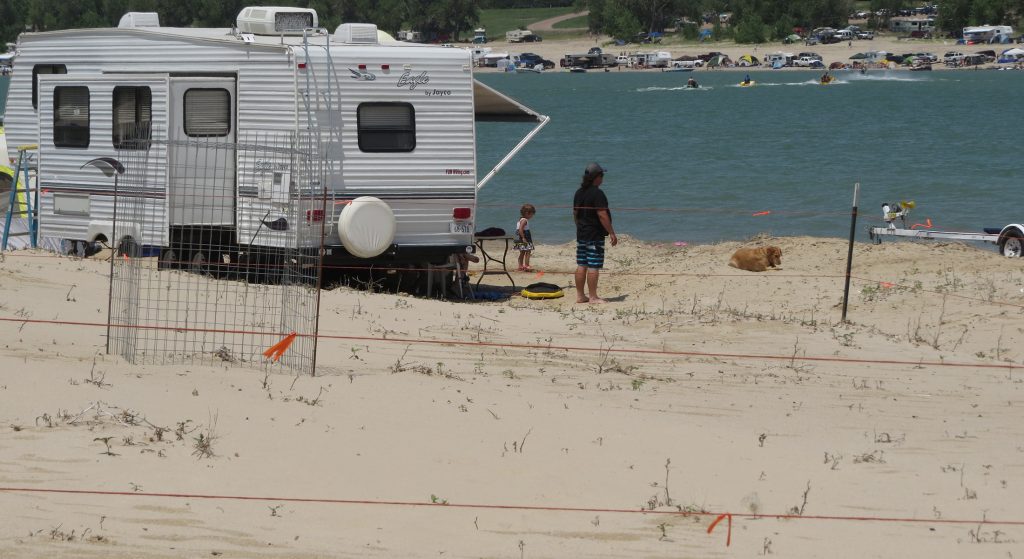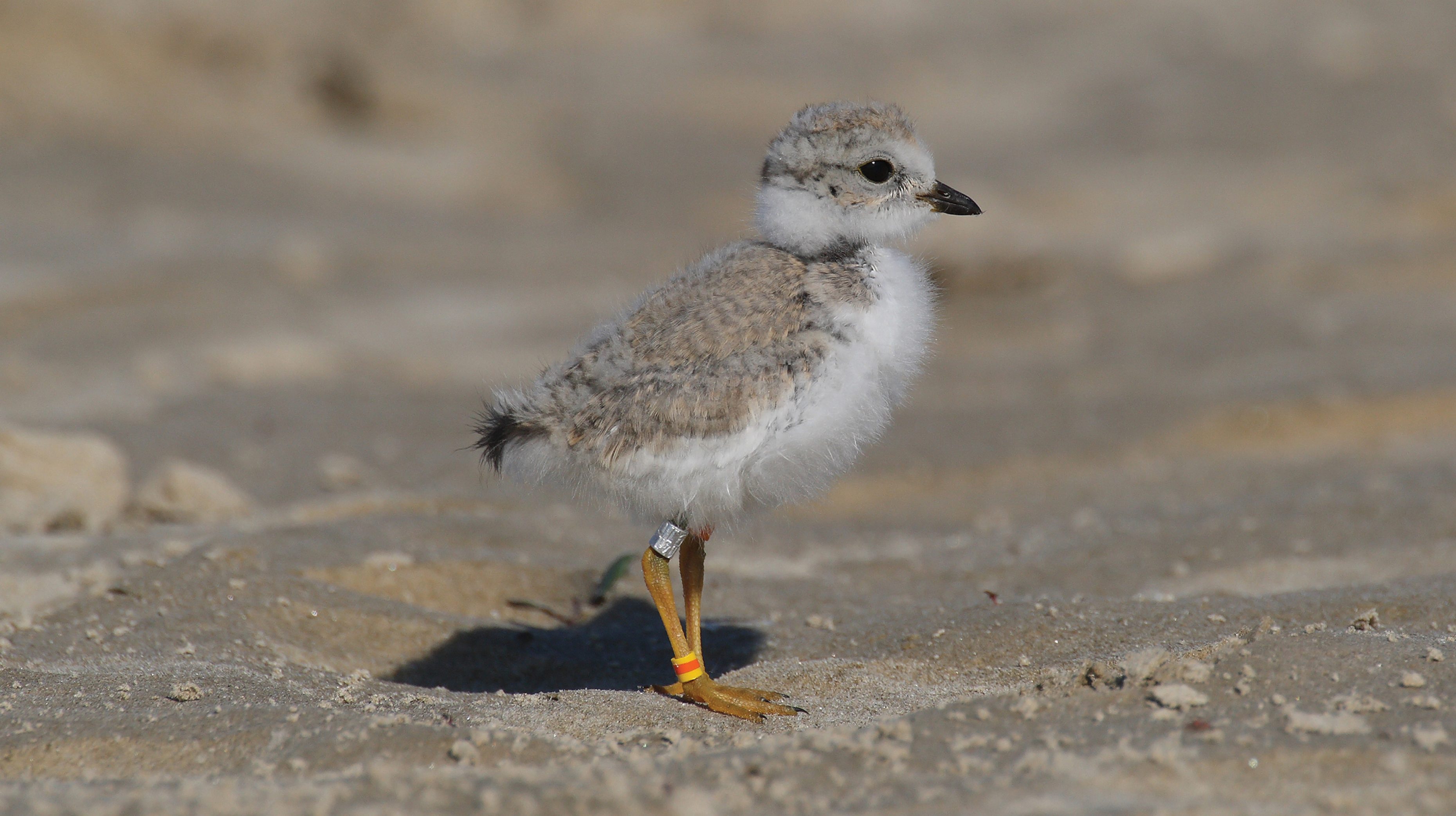Piping Plovers are state and federally threatened migratory shorebirds that nest on the beaches at Lake McConaughy, a popular recreation area in western Nebraska. This recreation area hosts over 1,000,000 visitors every year, most of whom visit during the plover nesting season. Management and recreation activities on this beach, especially off-leash dogs, have caused social conflict between recreationists and those supporting plover conservation.

Their study surveyed dog owners to examine their reasons for using (or not using) leashes while visiting the lake. Photo courtesy of Joel Jorgensen.
Nebraska Game and Parks Commission and the University of Nebraska conducted a human dimensions study that used various social science disciplines including political science, psychology, and communication science. Their study surveyed dog owners to examine their reasons for using (or not using) leashes while visiting the lake. The researchers also evaluated communication strategies aimed at increasing compliance with leash laws.

Human dimensions research was crucial in defining the reasons behind low leash law compliance at Lake McConaughy. Photo courtesy of Joel Jorgensen.
Research Insights
- Awareness of the law was not a barrier to dog owners leashing their pet; 80% of dog-owners were aware of the leash law but compliance was less than 20% for all dog owners. Thus, simply providing information would be ineffective and a poor use of resources.
- Pro-leashing messages that emphasized avoiding dog bites and dog fights were the most persuasive of the messages evaluated.
Outcomes
Human dimensions research was crucial in defining the reasons behind low leash law compliance at Lake McConaughy. This improved understanding led to an examination of existing communication techniques and evaluation of how communication strategies could be made more effective.
Along with increased enforcement, human dimensions research is influencing how park staff and federal agency personnel communicate with visitors about pet and human safety to improve threatened and endangered species conservation. Although evaluation of the effectiveness of these communication strategies is still in progress, leash law compliance at Lake McConaughy increased from 16% in 2013-2014 to 67% in 2016.
Learn more about this study at https://goo.gl/5p6Kyc or contact Joel.Jorgensen@nebraska.gov.

